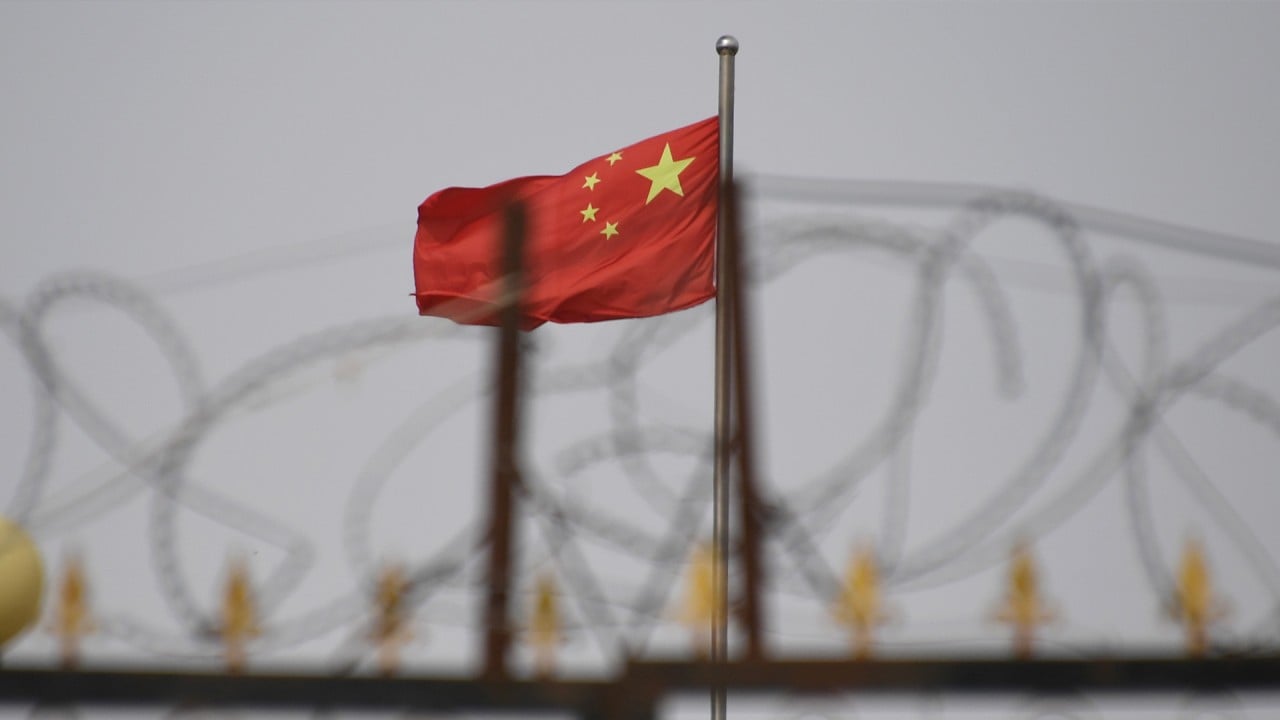
Chinese foreign minister hits out at Western critics on UAE coronavirus diplomacy stop
- Wang Yi witnesses launch of Sinopharm vaccine joint venture that UAE counterpart says could make the emirates into a production hub
- UAE will also set up a vaccination service for Chinese citizens throughout the Persian Gulf
China’s foreign minister hit back at international criticism of his country’s human rights record on the weekend as he stopped in the United Arab Emirates for the launch of a coronavirus vaccine production line.
In talks with his UAE counterpart Sheikh Abdullah bin Zayed Al Nahyan on Sunday, Wang said the human rights of a country should be judged only by its own people, not by the citizens of other nations.
“The human rights views of some Western countries do not represent international human rights views,” he said.
“If certain Western countries insist on using human rights as a pretext to contain and suppress developing countries and attempt to deprive non-Western countries of their right to development, this will be the greatest injustice in the history of humanity.”
Wang, Sheikh Abdullah and the Crown Prince of Abu Dhabi, Sheikh Mohammed Bin Zayed Al Nahyan, also took part in the launch of a line to bottle Chinese-made Covid-19 vaccines.
The facility is a joint venture to be set up in an industrial hub in Abu Dhabi between UAE tech firm G42 and China’s Sinopharm, and aims to supply 200 million doses of Sinopharm’s vaccine, mainly to the regional market.
“The new vaccine plant ... will become operational this year and over its phased development will have a production capacity of 200 million doses per annum across three filling lines and five automated packaging lines. The JV is already producing Hayat-Vax with its partner, Julphar in the UAE with an initial capacity of 2 million doses per month,” the joint venture company said, using the Arabic name of the vaccine meaning “life”.
According to the statement, the UAE had a vaccination rate of 52 per cent early this month and the production of Hayat-Vax in the country would further bolster its efforts to coverage.
Wang said that with the launch of the project, vaccine cooperation between China and the UAE had entered a new phase.
Sheikh Abdullah said the new venture would enable the UAE to become a hub for vaccine production and help more countries fight the epidemic.
China and the UAE have also agreed to recognise each other’s digital health pass for border entry to ease international travel. The UAE will also set up a vaccination service for Chinese citizens throughout the Persian Gulf.
Sun Degang, from the Centre for Middle Eastern Studies at Fudan University in Shanghai, said the vaccine cooperation would strengthen the overall strategic partnership between China and the UAE.
“Also, by promoting cooperation on vaccines, China wants to show the world that China’s comprehensive strategic partnerships with Iran, Saudi Arabia and the UAE are compatible – the Chinese can be friends to all and enemies to none in the Middle East; the partnerships do not necessarily target a third party,” Sun said.
Meanwhile, Wang suggested the two countries forge links between China’s Belt and Road Initiative and the UAE’s 50-year national development strategy, and deepen practical cooperation in energy, finance and high technology.
Sheikh Mohammed expressed support for the Beijing Winter Olympics next year, and welcomed China to play a bigger role in maintaining peace and stability in the Middle East.
Additional reporting by Simone McCarthy


